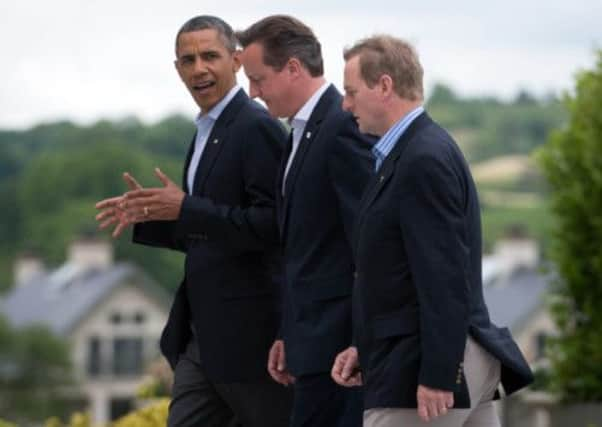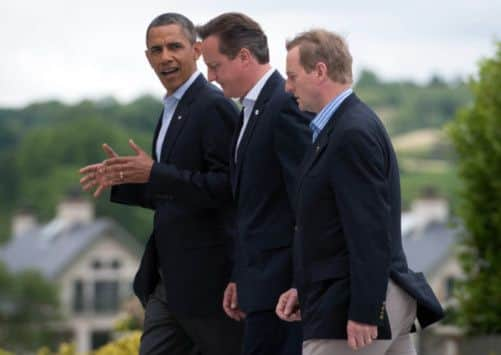G8 deal on tax and money-laundering


Transparency about the “beneficial ownership” of businesses was one of the key priorities set by Prime Minister David Cameron for the gathering in Northern Ireland.
It is hoped that international agreement on new rules will make it more difficult to set up companies in offshore tax havens which carry out no business activities but are used to conceal the ultimate owners of taxable assets.
Advertisement
Hide AdAdvertisement
Hide AdFollowing discussions with the leaders of the G8 countries - the UK, US, France, Germany, Italy, Canada, Japan and Russia - and Chancellor George Osborne at the Lough Erne summit, Mr Cameron sent out a message on Twitter to say that agreement had been reached on a UK action plan to prevent misuse of companies and legal arrangements.


The plan, published by No 10, commits Britain to using legislation to ensure that all companies know who ultimately owns and controls them and to require them to obtain and hold adequate, accurate and current information on their beneficial ownership.
The UK action plan requires companies to provide details of their ownership to a central registry, but does not guarantee that the public will be able to access the information.
Mr Osborne said the Government was consulting on whether to make the register public and was “open” to the idea.
Advertisement
Hide AdAdvertisement
Hide AdHe told the BBC: “What you will see today is some of the largest countries in the world accepting that we should know who owns what company.
“How that information is available is really going to be partly a matter for those individual countries because they have all got different tax systems and different parliaments and so on.”
African anti-poverty campaigners wrote to Mr Cameron with a last-ditch appeal for the registers to be made public.
Rakesh Rajani, the founder of Twaweza, and John Githongo, chief executive of the Inuka Kenya Trust, told him: “By committing to establishing public registries on companies’ ownership, the G8 would crack down on the abuse of secret companies. This must be done in ways that work for developing countries. The best way of doing that is by making the registries public.
Advertisement
Hide AdAdvertisement
Hide Ad“Our countries and our citizens must not be left out of the transparency revolution.”
Agreement is also expected in today’s summit communique on changes to outdated international tax rules which allow wealthy companies and individuals to locate their profits in low-tax jurisdictions and avoid paying taxes on them in the countries where they were earnt.
Mr Osborne said he believed people would be “impressed” by the commitments achieved today.
“I think we have probably made more progress in the last 24 hours than people have made in at least 24 years,” he said.
Advertisement
Hide AdAdvertisement
Hide AdDecades-old international tax laws have failed to keep up with the new realities of the globalised world, said the Chancellor.
“As a result, individuals can hide the taxes they are supposed to pay in the international banking system and companies are able to shift their profits around the globe, away from where those profits are actually generated and therefore they don’t pay tax,” he said.
“That’s really important because that is less money for our NHS and our schools and the things we need to invest in.”
A key feature of the proposals is support for a new regime of exchange of tax information, so that countries will be able to know details of offshore accounts held by companies or individuals overseas.
Advertisement
Hide AdAdvertisement
Hide AdBritain is planning to take part in a pilot scheme later this year to trial the new rules ahead of the introduction of new OECD standards, and wants to sign up other countries.
Britain has often been seen as an international black sheep on tax havens, thanks to the practices in its overseas territories and crown dependencies like Bermuda, the Cayman Islands, Jersey, Guernsey and the Isle of Man. But Mr Osborne said their agreement in London on Saturday to accept the new OECD code showed the UK was “putting our house in order”.